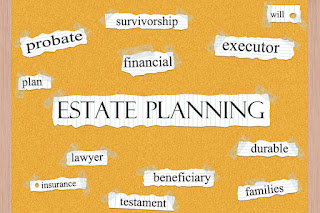Summary: For many, our moral and ethical views are some of the strongest
perspectives we hold. Your estate plan is one method for living your faith
and/or values. Trusts can possibly provide significant benefits as you use your
estate plan to aid a person or entity in the furtherance of a religious or
charitable mission. You can ensure that your end of life decisions reflect your
values by careful planning with regard to your living will and healthcare power
of attorney.
The decisions you make in your estate plan are a part of the reflection
of who you are. One way to demonstrate your values is through estate planning.
These decisions can go well beyond just remembering a values-based charity in
the distribution of your assets, but can impact a wide range of elements of
your plan.
One straightforward way to bestow this benefit is through including a
distribution in your will or living trust that goes directly to the cause of
your choice. You might choose to help a church, a church-connected charitable
organization or a religious educational institution. Others might prefer to
demonstrate their values by benefiting a philanthropic entity that is not tied
to any religious organization.
However, you also have other options available, as well. Special trusts,
called charitable remainder trusts and charitable lead trusts, may allow you to
further the cause of your favorite religious or secular charity while also
reducing your tax obligations. Charitable lead trusts can lower your current
taxable income, while charitable remainder trusts can lower your potential
capital gains tax obligations. For this reason, a charitable remainder trust
may be especially useful if you have a charity you wish to aid and you have
assets that have appreciated substantially since you bought them (such as real
estate or stocks.) It is important that the IRS recognize the charity your wish
to benefit, otherwise you may lose the tax-related benefits of your trust.
There are other ways to reflect your values in your plan. You can make some
(or all) of the distributions from your living trust or will conditional on the
beneficiary making certain choices or acting in a way consistent with your
values. For example, you could make a cash distribution to a loved one
conditional or his/her pursuing a religious education or you could distribute a
piece of real estate to a beneficiary on the condition that the property be
used only for the furtherance of a religious mission. You can also instruct
that beneficiaries not use the assets they receive from you for anything that
contradicts your values. Utilization of an incentive trust (or trusts) may be
helpful if you want to incorporate such goals into your plan.
Finally, if you have strong views, based in your religious or ethical
foundations, regarding end of life decisions, it is important to plan for those
positions to be followed. You should communicate your preferences to your
estate planning attorney and your loved ones, and when choosing an agent to act
on your behalf under the power of your living will or healthcare power of
attorney, you should strongly consider selecting someone who shares your
perspectives and values regarding end of life decisions.
This article is
published by the Legacy Assurance Plan and is intended for general informational
purposes only. Some information may not apply to your situation. It does not,
nor is it intended, to constitute legal advice. You should consult with an
attorney regarding any specific questions about probate, living probate or
other estate planning matters. Legacy Assurance Plan is an estate planning
services-company and is not a lawyer or law firm and is not engaged in the
practice of law. For more information about this and other estate planning
matters visit our website at www.legacyassuranceplan.com.
This article written and
published by:
8039 Cooper Creek Blvd
University Park, Florida
34201
844.306.5272 (Phone)
info@legacyassuranceplan.com (email)





